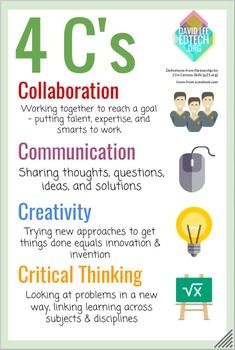What unique skills do you bring to the position, Recognizing your unique skills is vital because it helps you stand out in job applications. When you know what makes you different, you can match your abilities with the job’s needs. This not only makes you a strong candidate but also shows how you can excel in the role.
Being aware of your unique skills makes it easier to talk confidently in interviews, letting employers see your value. Moreover, it guides your personal and professional growth, helping you build a strong professional identity. Identifying your unique skills ultimately contributes to job satisfaction by aligning your work with your strengths.
Self-Reflection and Assessment

Self-reflection and assessment are integral components of personal and professional development, involving a comprehensive examination of your skills, experiences, strengths, and areas for improvement. This introspective process is vital for several reasons:
Understanding Your Strengths and Weaknesses
Self-reflection allows you to identify your strengths. The skills and qualities where you excel. Simultaneously, it helps recognize your weaknesses, and areas that may require improvement.
Clarifying Personal and Professional Goals
By assessing your values, aspirations, and career objectives, you can align your professional path with your personal goals, ensuring a more fulfilling and purpose-driven journey.
Making Informed Career Decisions:
Decision Support: Self-reflection provides a foundation for making informed career choices. It helps you evaluate whether a job opportunity aligns with your skills, values, and long-term objectives.
Continuous Learning and Adaptability:
Growth Mindset: Regular self-assessment fosters a mindset of continuous learning. Understanding your areas for improvement encourages you to seek new knowledge and skills, promoting adaptability in a rapidly changing work environment.
Effective Communication and Collaboration

Interpersonal Skills: Recognizing your communication style and teamwork preferences enables you to work more effectively with others. It enhances collaboration by understanding how your strengths complement those of your colleagues.
Career Satisfaction and Fulfillment
Alignment with Strengths: Aligning your career with your strengths leads to increased job satisfaction. It allows you to pursue roles that play to your abilities, fostering a sense of accomplishment and fulfillment.
Navigating Challenges with Resilience

Resilience Building: Self-reflection equips you with a deeper understanding of your coping mechanisms. This awareness enhances your resilience in the face of challenges, enabling you to navigate setbacks more effectively.
Practical Steps for Self-Reflection and Assessment
- Document Your Experiences: Keep a record of your achievements, challenges, and significant experiences to identify patterns and lessons learned.
- Identify Transferable Skills: Recognize skills from past experiences that are transferable to different roles, industries, or situations.
- Seek Feedback: Actively seek feedback from peers, mentors, or supervisors to gain external perspectives on your strengths and areas for improvement.
- Set Development Goals: Based on your reflections, establish clear and achievable goals for personal and professional growth.
- Regular Check-Ins: Schedule regular self-assessment check-ins to track your progress, reassess goals, and make necessary adjustments.
Self-reflection and assessment provide a roadmap for personal and professional success by enhancing self-awareness, guiding decision-making, and fostering continuous growth.
Researching the Company

Researching the company is a crucial step in preparing for a job interview or considering a job opportunity. This process involves gathering information about the organization’s values, culture, goals, and overall operations. Here’s a detailed look at why and how you should research a company:
Company Culture and Values:
Importance: Researching the company helps you comprehend its culture and values. This understanding allows you to align your values with those of the organization, ensuring a better fit.
Aligning Your Skills with Company Needs
Knowing the company’s mission and objectives enables you to tailor your application or interview responses to showcase how your skills and experience align with what the company is looking for.
Identifying Unique Skills
- Self-Reflection: Reflect on your experiences, both personal and professional, to identify patterns of success and areas where you excel.
- Feedback from Others: Seek feedback from colleagues, mentors, or supervisors. External perspectives can provide insights into your unique strengths.
- Skill Assessment Tools: Utilize skill assessment tools or personality tests that can help identify your strengths and unique qualities.
- Review Past Achievements: Examine your past achievements and projects to identify the skills that contributed to your success.
- Industry Trends and Emerging Skills: Stay informed about industry trends and emerging skills. Identify areas where you possess expertise that aligns with the current needs of your field.
- Professional Training and Certifications: Consider any professional training or certifications you have acquired. These specialized skills can be unique and valuable in certain job contexts.
- Passions and Hobbies: Your passions and hobbies can also reveal unique skills. Consider how your interests outside of work contribute to your overall skill set.
Common Mistakes to Avoid
Avoiding common mistakes in the job application and interview process is crucial for presenting yourself as a strong candidate. Here are key pitfalls to steer clear of:
Being Too General
Mistake: Providing vague or generic responses without highlighting specific skills or experiences.
Impact: This can make you appear unfocused and less memorable to employers.
Overemphasizing Generic Skills
Mistake: Relying heavily on generic skills (e.g., “good communication” or “team player”) without providing concrete examples.
Impact: It dilutes your unique value and does not differentiate you from other candidates.
Failing to Connect Skills to Job Requirements
Mistake: Not demonstrating how your skills align with the specific requirements of the job.
Impact: Employers may struggle to see the relevance of your skills to their needs.
Neglecting Research on the Company
Mistake: Failing to research the company and its values before an interview.
Impact: This can signal a lack of genuine interest and preparation, potentially diminishing your chances.
Lack of Examples and Evidence
Mistake: Making claims about your skills without providing concrete examples or evidence.
Impact: Employers may question the authenticity of your statements, affecting your credibility.
Ignoring the Importance of Soft Skills
Mistake: Overlooking the significance of soft skills like communication, adaptability, and teamwork.
Impact: Soft skills are often crucial; neglecting them can hinder your ability to work effectively in a team.
Not Tailoring Responses to the Job
Mistake: Using generic responses that are not tailored to the specific requirements of the job.
Impact: This may give the impression that you are applying indiscriminately, rather than with a genuine interest in the role.
Conclusion
It’s not just about saying what you’re good at; it’s about showing how uniquely valuable you are. Your special skills, a mix of your experiences and talents, set you apart. Avoid common mistakes, talk about both your hard and soft skills, and customize your responses. Recognizing your uniqueness is ongoing; it’s a journey of self-discovery and growth.
Picture your skills as a guiding light that makes you stand out in job interviews. Your ability to communicate, collaborate, and contribute uniquely is your superpower. So, as you face future opportunities, embrace your distinct strengths. Your potential isn’t just special; it’s a force waiting to shine. Step forward with confidence, armed with the knowledge of your unique skills, and leave an indelible mark on your professional journey.



